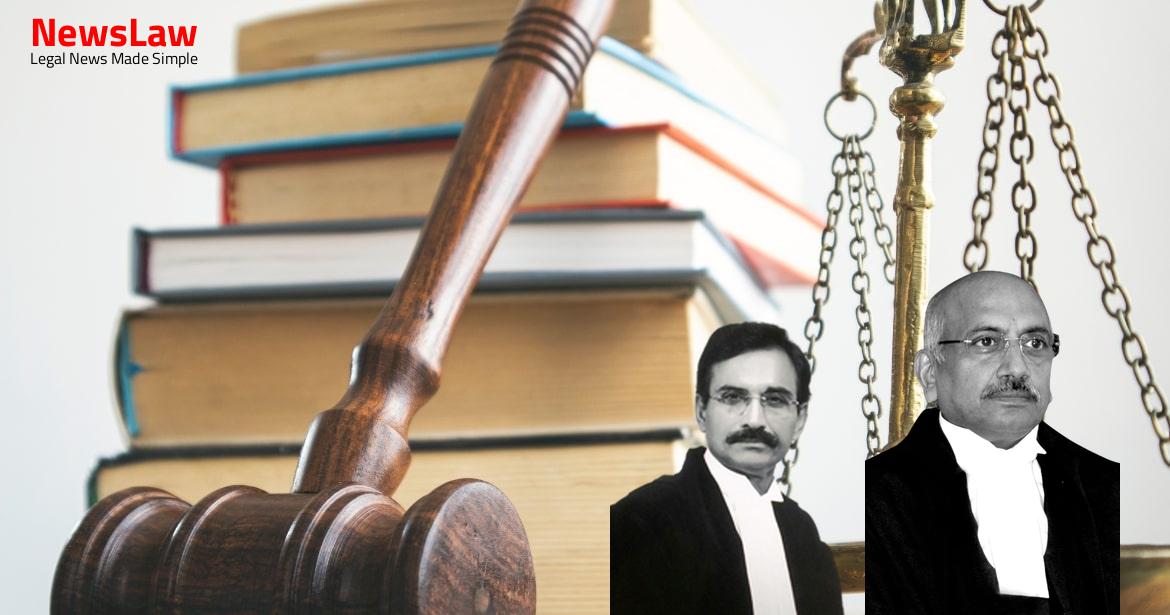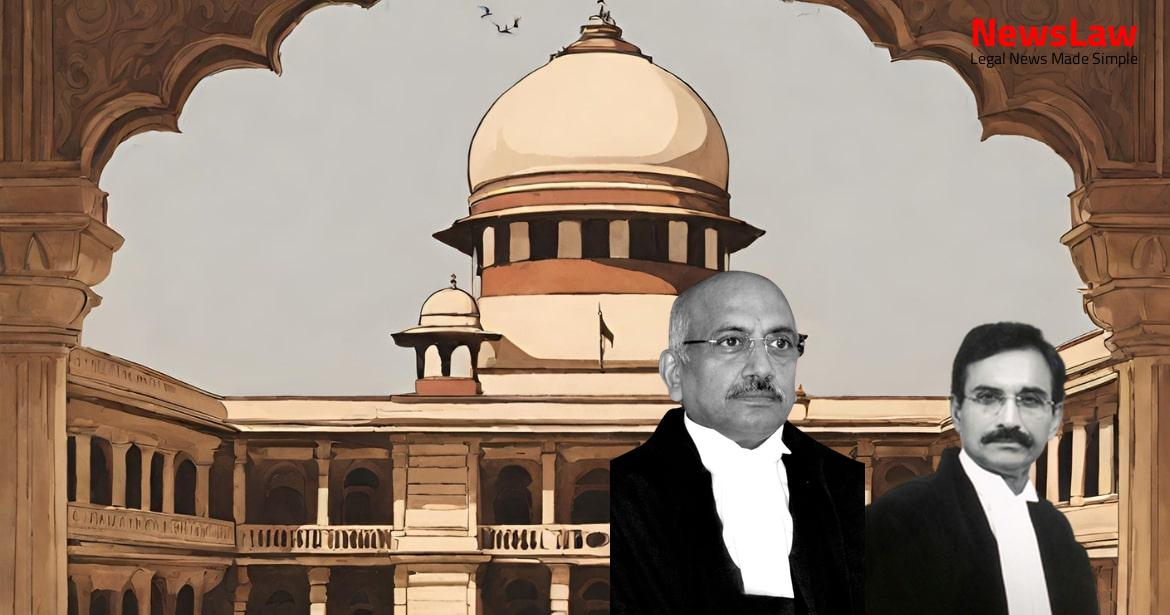A significant legal ruling was recently delivered by the Supreme Court of India in the case involving Mahesh Kumar and others. The judgement provided clarity on crucial aspects of the law and set a precedent for future cases. Let’s delve into the details of this landmark decision.
Facts
- The trial court concluded that the prosecution proved its case against Appellant Mahesh Kumar and Savitri Devi for dowry death.
- Accused Rajpal and Kamlesh were acquitted due to lack of specific role assigned to them.
- The High Court affirmed the conviction of Mahesh Kumar but reduced his sentence from ten years to seven years.
- The High Court allowed Savitri Devi’s appeal and acquitted her of the charges based on benefit of doubt.
- The prosecution was initiated based on the statement of PW3 Sohan Lal, the complainant and father of the deceased.
- The complainant received information about his daughter’s death allegedly caused by poison administered by the accused on 08.02.1994.
- An FIR was lodged on 09.02.1994 against the deceased’s father-in-law Rajpal, mother-in-law Smt. Savitri, and sister-in-law Kamlesh.
- The deceased had sent a letter to the complainant informing about ill-treatment by her in-laws and demands for dowry.
- The complainant visited the deceased and her in-laws, informed them of his inability to meet dowry demands beyond his capacity, and warned against harassing his daughter.
- The deceased’s in-laws had apologized, promised to send her back home on Raksha Bandhan, and her father-in-law had written an apology for their actions.
- The deceased had expressed fear of not being allowed to live if the dowry demands were not met, despite the complainant providing dowry and a gold chain.
- Investigation was conducted, all four accused were arrested, and a charge was framed under section 304-B IPC against them.
Also Read: Property Inheritance Dispute: The Legacy of Chhotabhai Ashabhai Patel
Arguments
- The deceased died within 7 years of marriage due to organo phosphorus pesticide
- Evidence shows cruelty continuously after marriage on account of dowry
- Key question is whether there is a proximate nexus between death and cruelty for Section 304-B IPC
- No evidence of dowry demand soon before death by the appellant’s family
- Sections 304-B IPC not applicable to the appellant
- Letters produced by prosecution do not pertain to dowry demand close to death
- Appellant’s counsel argues that essential ingredients of Section 304-B IPC are not proven by prosecution
Also Read: Lt. Col. Om Dutt Sharma vs. Ministry of Defence: OROP Entitlement for Army Postal Service Personnel
Analysis
- Prosecution failed to prove the demand of dowry or that any such demand was raised soon before the death of the deceased.
- No independent witnesses were examined to support the prosecution’s story of harassment.
- Statements of the deceased’s father and brother were relied upon for conviction but were not considered sufficient without independent evidence.
- Memorandum and letters produced by the prosecution were not deemed reliable without proper proof of their authenticity and timing.
- The letters from the deceased to her father, brother-in-law, and a family member did not clearly indicate any demand for dowry.
- The documentary evidence presented by the prosecution did not support their case.
- The court emphasized the need for material showing cruelty or harassment soon before the victim’s death to establish the offense under Section 304-B of the IPC.
- The prosecution was required to rule out the possibility of a natural or accidental death to classify it as occurring other than in normal circumstances.
- The court analyzed the essential ingredients required to establish an offence under Section 304-B of IPC.
- It was concluded that the prosecution failed to prove these essential ingredients.
- Similarly, the prosecution could not establish the initial presumption under Section 113-B of the Evidence Act.
- Prosecution failed to prove allegations against the appellant beyond reasonable doubt.
- Judgement was made in favor of the appellant due to lack of conclusive evidence.
- Appellant was acquitted of all charges mentioned in the case.
- The burden of proof was not met by the prosecution in this case.
- Evidence presented was not sufficient to establish guilt beyond reasonable doubt.
Also Read: Financial Capacity and Specific Performance: A Landmark Judgment by the Supreme Court Of India
Decision
- The appellant has filed an appeal against his conviction in the present case.
- The appellant’s counsel argued that there were several discrepancies in the prosecution’s case and the evidence presented was insufficient to prove the appellant’s guilt beyond a reasonable doubt.
- After considering the arguments and examining the evidence on record, the Court found merit in the appellant’s contentions.
- The Court concluded that the prosecution had failed to establish the appellant’s guilt beyond a reasonable doubt and therefore, the conviction was set aside.
- The appellant is ordered to be set at liberty, provided he is not involved in any other case.
- The bail bonds of the appellant shall stand discharged.
Case Title: MAHESH KUMAR Vs. STATE OF HARYANA
Case Number: Crl.A. No.-001042-001042 / 2012



